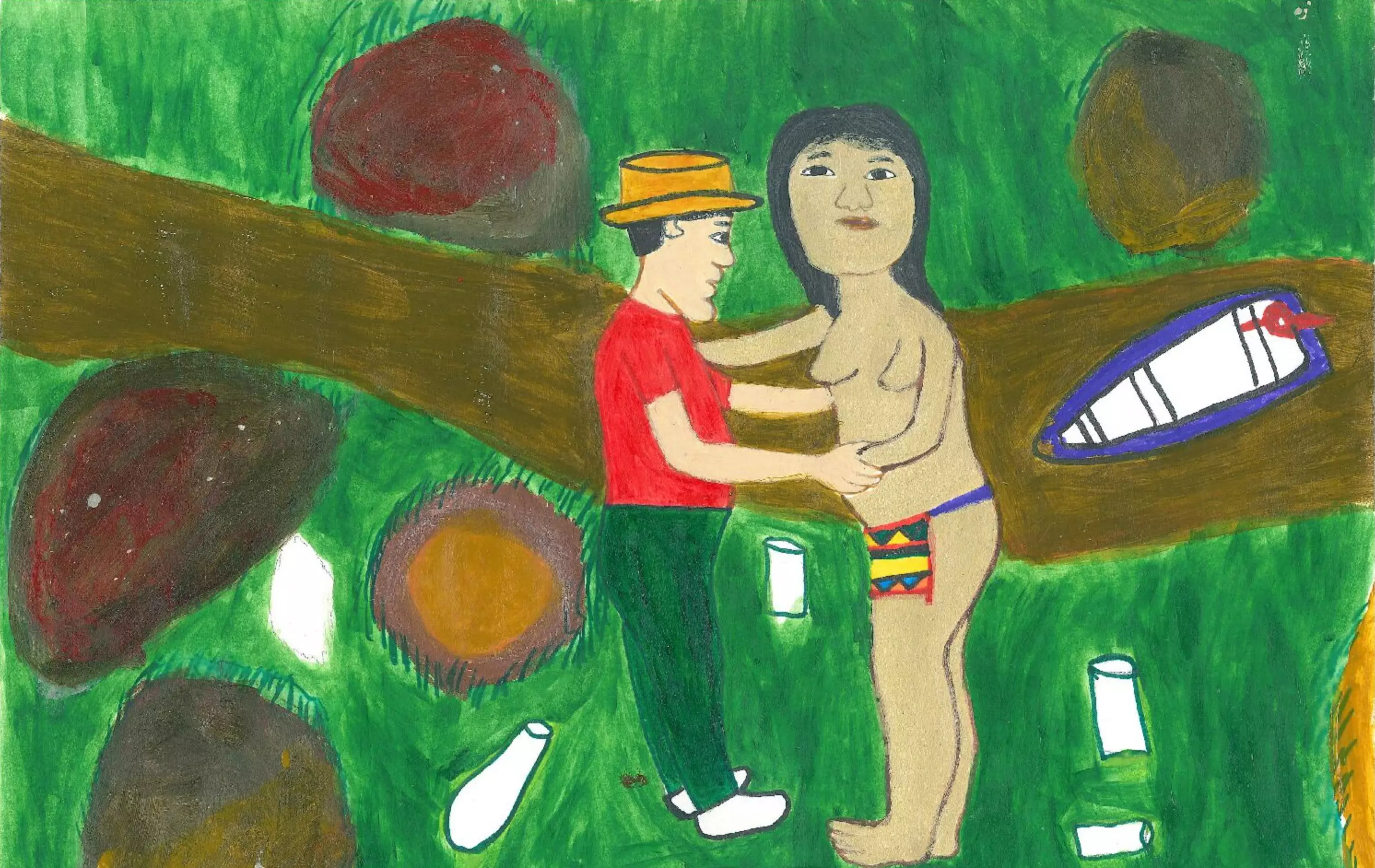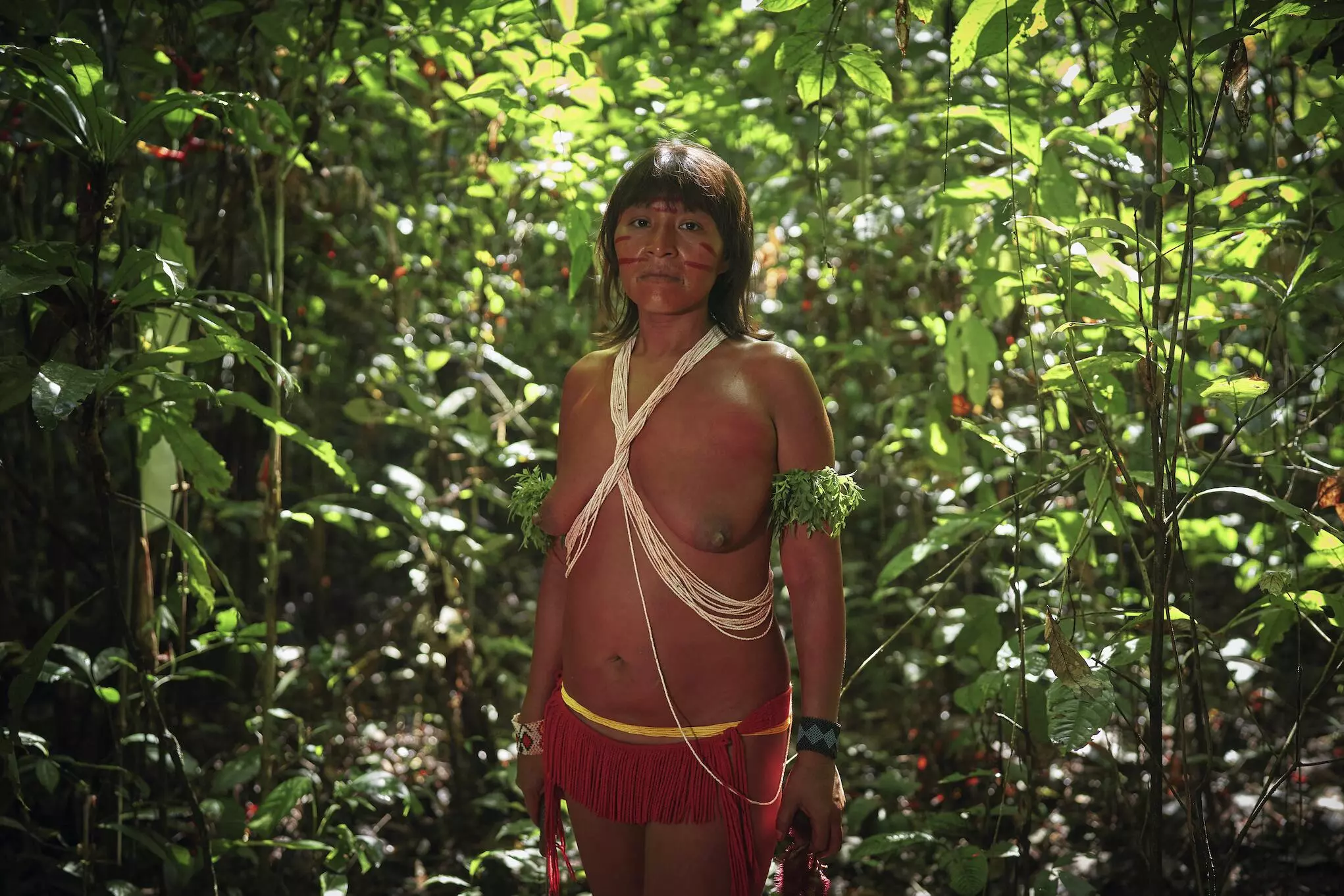
In the sketches of Ehuana Yaira Yanomami, 38, men are dwarfed, as in the drawing that illustrates this story. Women are big and strong. They dominate the forest, they move like leaf-women through dense woods. They use their machetes to catch fish or cut fruit that will feed their children at the end of the day. In the pictures, they are many. And all of them are Ehuana too.
Born in Demini, one of the 350 villages of Yanomami Indigenous Land, the biggest demarcated area in Brazil, she was the first woman of her ethnic group to write a book in her own language: Yɨpɨmuwi thëã oni: (Written words on menstruation). Organized by her and by the anthropologist and indigenist Ana Maria Machado, in co-authorship with an elderly woman who lived in her village, it tells the initiation rites into maturity and a new body. It is an important ethnographic record in a tumultuous world, in a culture that is at risk of disappearing due to the non-indigenous invasion of their territory. Miners enter illegally in search of gold and pollute rivers, deforest lands and destroy bodies. They are yet to reach her village. But they are closing in.
In August, Ehuana accompanied us in interviews with Yanomami women about the impacts of illegal mining on their lives. She was alarmed, especially, with the story of a young woman, 18 years old and not reaching four foot (120cm) in height, who lived in a brothel inside an illegal mining site, where Yanomami girls of 13 and 14 years old exchanged sex for rice, crackers and pasta. Under Brazilian law, sex with children and teenagers under 14 is considered rape against vulnerable persons, regardless of consent.
The girls were drawn by another young Yanomami, who received gold in exchange for her body. The drawing of the artist, presented here, shows this girl being pulled by her arms to dance with another miner in a degraded forest, with liquor bottles thrown away at the margins of a polluted river and upturned ground.
Mother of three girls aged 5, 9 and 14, and a 19 year-old boy, Ehuana worries what will happen to her children in an area where not even the school, where she herself graduated in the 1990s and became the first teacher of her region, exists anymore. In 2023, she will take her drawings to exhibitions in New York and Milan – now, they are in Lille, France. It is a new world that unfolds with her talent, where she hopes to gather new allies to protect her people. But Ehuana knows the front line of this battle is the world-forest, where she and her sisters confront the small men.
TEXT: Talita Bedinelli
TRANSLATION: Thiago Leal

The artist Ehuana Yaira, in her forest-home, in Demini, Yanomami Indigenous Land




